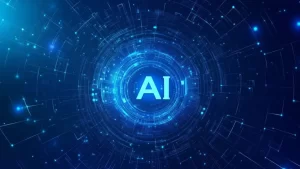Integrating generative AI into your business means innovating, but also managing risks. Here’s how to choose the right approach to get value
The adoption of generative AI in the enterprise is growing rapidly, bringing innovation to decision-making, creativity and operations. However, to fully exploit its potential, it is essential to define clear objectives and adopt strategies that balance benefits and risks.
Over the course of my career, I have been fortunate to experience firsthand some major technological revolutions – from the internet boom to the “renaissance” of artificial intelligence a decade ago with machine learning.
However, I have never seen such a rapid rate of adoption as the one we are experiencing now, thanks to generative AI. Although this type of AI is not yet perfect and presents significant risks – such as so-called “hallucinations” or the possibility of generating toxic content – it fills a real need, both for people and for companies, generating a concrete impact on communication, creativity and decision-making processes.
Defining the Goals of Generative AI in the Enterprise
When we talk about AI, we must first ask ourselves what problems we really want to solve. As a teacher and consultant, I have always supported the importance of starting from the specific context of a company and its concrete objectives, without inventing solutions that are as “smart” as they are useless.
AI is a formidable tool to support different processes: from decision-making to optimizing operations or developing more accurate predictive analyses. But to have a significant impact on the business, you need to choose carefully which task to entrust it with, making sure that the solution also respects the security and privacy needs of your customers .
Understanding Generative AI to Adopt It Effectively
A widespread risk, in fact, is that of being guided by enthusiasm and deploying sophisticated technology where it is not really needed. For example, designing a system of reviews and recommendations for films requires a certain level of attention and consumer protection, but it is very different from an X-ray reading service to diagnose the presence of a tumor. In the second case, there is a huge ethical and medical risk at stake: it is necessary to adapt the design, control measures and governance of the AI to the sensitivity of the context in which it will be used.
The fact that generative AI is spreading so rapidly is a sign of its potential and, at the same time, a call for caution. This technology manages to amaze anyone who tries it: it drafts documents in a few seconds, summarizes or explains complex concepts, manages the processing of extremely complex data. It turns into a trusted assistant that, on the one hand, saves hours of work and, on the other, fosters creativity with unexpected suggestions or solutions.
Yet, it should not be forgotten that these systems can generate “hallucinated” content (i.e., completely incorrect), or show bias or linguistic toxicity where the starting data is not sufficient or adequately “clean”. Furthermore, working with AI models at scale is not at all trivial: many start-ups and entrepreneurs initially try a successful idea, but struggle to implement it on an infrastructure capable of supporting real workloads, with adequate governance measures and risk management strategies. It is crucial to adopt consolidated best practices, structure competent teams, define a solid operating model and a continuous maintenance plan for the system.
The Role of Generative AI in Supporting Business Decisions
One aspect that I find particularly interesting is the support that AI offers to business decisions. Algorithms can analyze a huge amount of data, simulating multiple scenarios and identifying patterns that are elusive to the human eye. This allows to mitigate biases and distortions – typical of exclusively human decision-making processes – and to predict risks and opportunities with greater objectivity.
At the same time, I believe that human intuition must remain key: data and numerical projections offer a starting point, but context, ethics and sensitivity towards collaborators and society remain elements of human relevance. The right balance between algorithmic analysis and strategic vision is the cornerstone of a responsible adoption of AI.
Industries Where Generative AI Is Transforming Business
As a professor of Responsible Artificial Intelligence and Digital Business & Innovation, I often see how some sectors are adopting AI extremely quickly. Many industries are already transforming rapidly. The financial sector, for example, has always been a pioneer in adopting new technologies: risk analysis, fraud prevention, algorithmic trading, and complex document management are areas where generative AI is proving to be very effective.
Healthcare and life sciences are taking advantage of AI advances in drug discovery, advanced diagnostics, and the analysis of large amounts of clinical data. Sectors such as retail, logistics, and education are also adopting AI to improve their processes and offer more personalized experiences. In light of this, I would say that no industry will be completely excluded from the changes: even “humanistic” professions, such as those related to medical care or psychological counseling, will be able to benefit from it as support, without AI completely replacing the relational and care component.
Integrating Generative AI into the Enterprise: Best Practices and Risk Management
A growing trend is the creation of specialized AI services AI-as-a-Service. These are based on large language models but are tailored to specific functionalities (writing, code checking, multimedia content production, research support, etc.). I personally use various AI-as-a-Service tools every day, deriving benefits from them for both teaching and research. I find this model particularly advantageous for small and medium-sized businesses, which can thus adopt AI solutions without having to invest heavily in infrastructure and specialized talent that are difficult to find.
Of course, adopting AI technologies requires companies to adopt a well-structured risk management strategy, covering key areas such as data protection, fairness and lack of bias in algorithms, transparency towards customers, protection of workers, definition of clear responsibilities regarding automated decisions and, last but not least, attention to environmental impact. Each AI model, especially if trained on huge amounts of data, can require significant energy consumption.
Furthermore, when we talk about generative AI and conversational models , we add concerns about possible inappropriate or harmful responses (so-called “hallucinations”), which must be managed by implementing filters, quality control and continuous monitoring processes. In other words, although AI can have disruptive and positive effects, the ultimate responsibility remains with humans and the companies that use it.
Read the full article below (in Italian):









